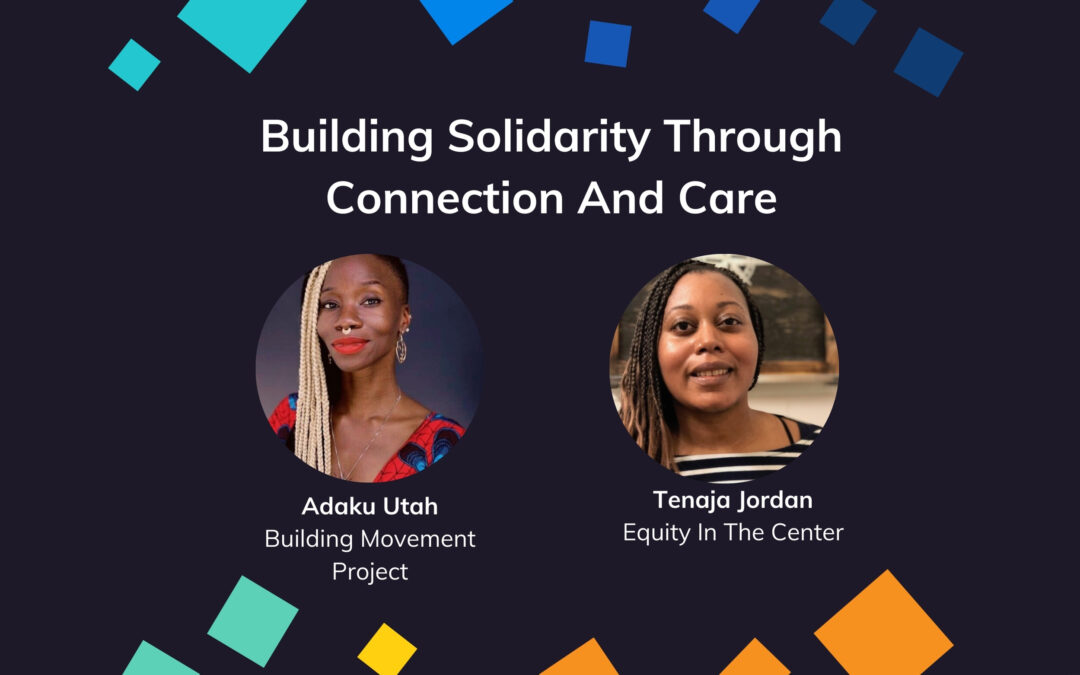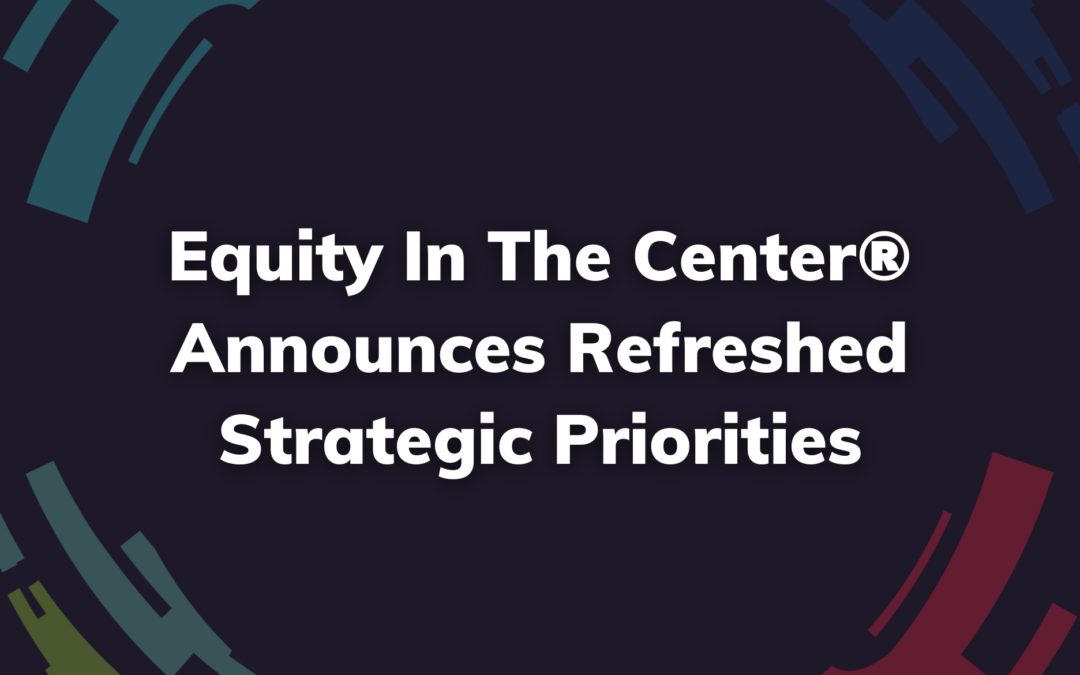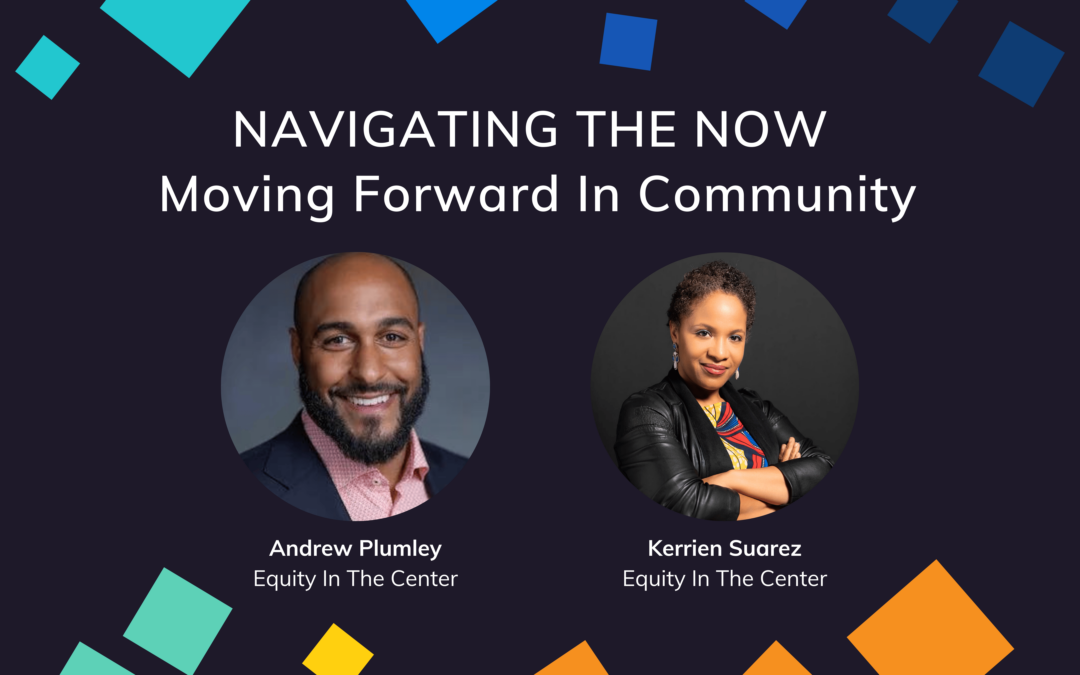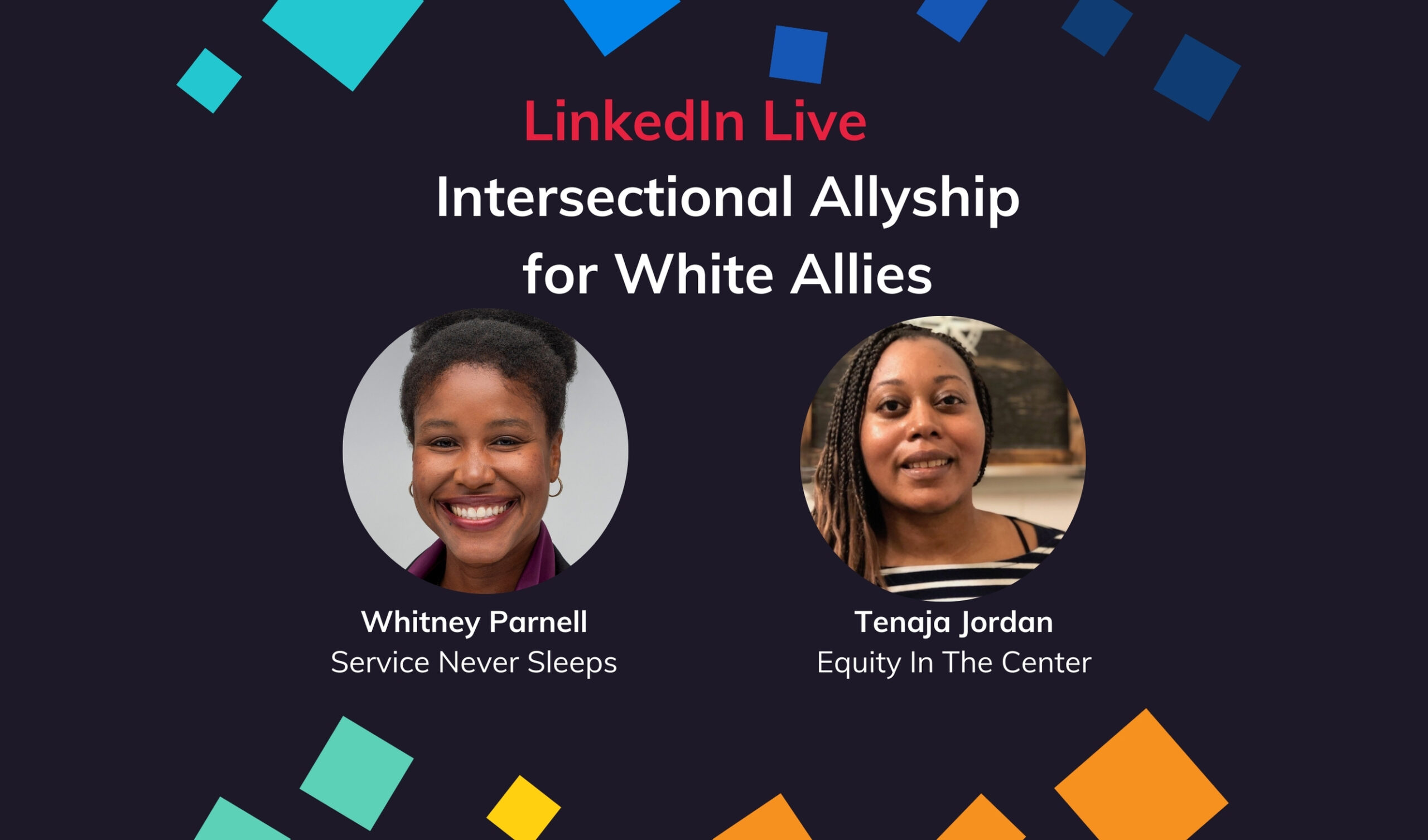
In a recent Equity in the Center LinkedIn Live, Tenaja Jordan spoke with Whitney Parnell, founder and CEO of Service Never Sleeps, about what it means for white people to move from passive intent to active allyship. At a time when racial polarization is being deliberately stoked, the conversation centered on privilege, responsibility, and the lifelong practice of showing up for justice.
Parnell began by defining allyship as an active way of life practiced from one’s areas of privilege, centered on bridge-building in pursuit of social justice for all. For white people, that means recognizing that allyship is not an optional favor or a charitable gesture; it is a responsibility. White privilege positions people as unintentionally complicit in structures of oppression, and allyship requires dismantling those systems externally while doing the self-work to unlearn harmful patterns internally. This framing pushes back on common misconceptions. Bridge-building, for example, is not just about “meeting in the middle.” White supremacy strips all people of humanity, including white people, by fostering scarcity and isolation. Real bridge-building requires connection, accountability, and the courage to disrupt dehumanizing norms. As Parnell noted, the north star is shared humanity, defined as a world where everyone can thrive.
Why center race?
Because race is the axis where disparities are most severe and intersect across every domain of life. Parnell underscored that while allyship applies to many forms of injustice, white people have a distinct responsibility in the context of race. Too often, they claim they “don’t know what to do.” The truth is that BIPOC communities have been naming what is needed at institutional and systemic levels for generations. The task is not to invent answers but to listen, act, and share power.Listening, however, can be difficult for those conditioned by privilege.
Jordan pointed out that one privilege white people often hoard is agency itself—the belief that their perspective is automatically correct because others are not empowered to disagree. Parnell added that this surfaces in moments of fragility and defensiveness. When white people hear BIPOC voices naming harm, they may interpret those truths as personal indictments. The real work, she emphasized, is to turn the mirror inward and ask why accountability feels like accusation.
Service Never Sleeps’ CLAIM Framework
To guide this practice, Service Never Sleeps uses the CLAIM framework-Care, Learn, Act, Influence, Maintain-with a focus on what white allyship looks like in action:
- Care: Show up interpersonally for BIPOC communities impacted by injustice. Allyship is lived in relationships, not just headlines.
- Learn: White people must take responsibility for educating themselves, rather than exhausting BIPOC peers with demands for teaching. When knowledge is shared, it should be received as a gift.
- Act: Allyship means stopping harmful behaviors as much as starting new ones. If white people collectively prevented everyday harms, society would shift immediately.
- Influence: White people can and must use sameness bias to reach other white people. Conversations that BIPOC voices are dismissed in can land differently when white peers take up the labor.
- Maintain: Allyship is forever work. It does not end when media cycles fade or when it becomes uncomfortable. As Parnell put it, privilege allows white people to step off the moving walkway of oppression at any time—but stopping only means sliding backward.
Parnell closed with a reminder: the word ally has been watered down into a self-congratulatory identity. Service Never Sleeps instead trains in allyship as a verb-ongoing, uncomfortable, and inseparable from daily choices. White people have the privilege of opting out. Allyship begins when they refuse that comfort, embrace responsibility, and commit to maintenance for the long haul.
If it feels easy, it is not allyship. True solidarity requires white people to keep walking against the current-day after day, choice after choice.
